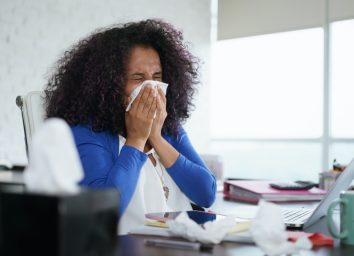Popular Foods That Make Your Allergies Worse, Says Doctor
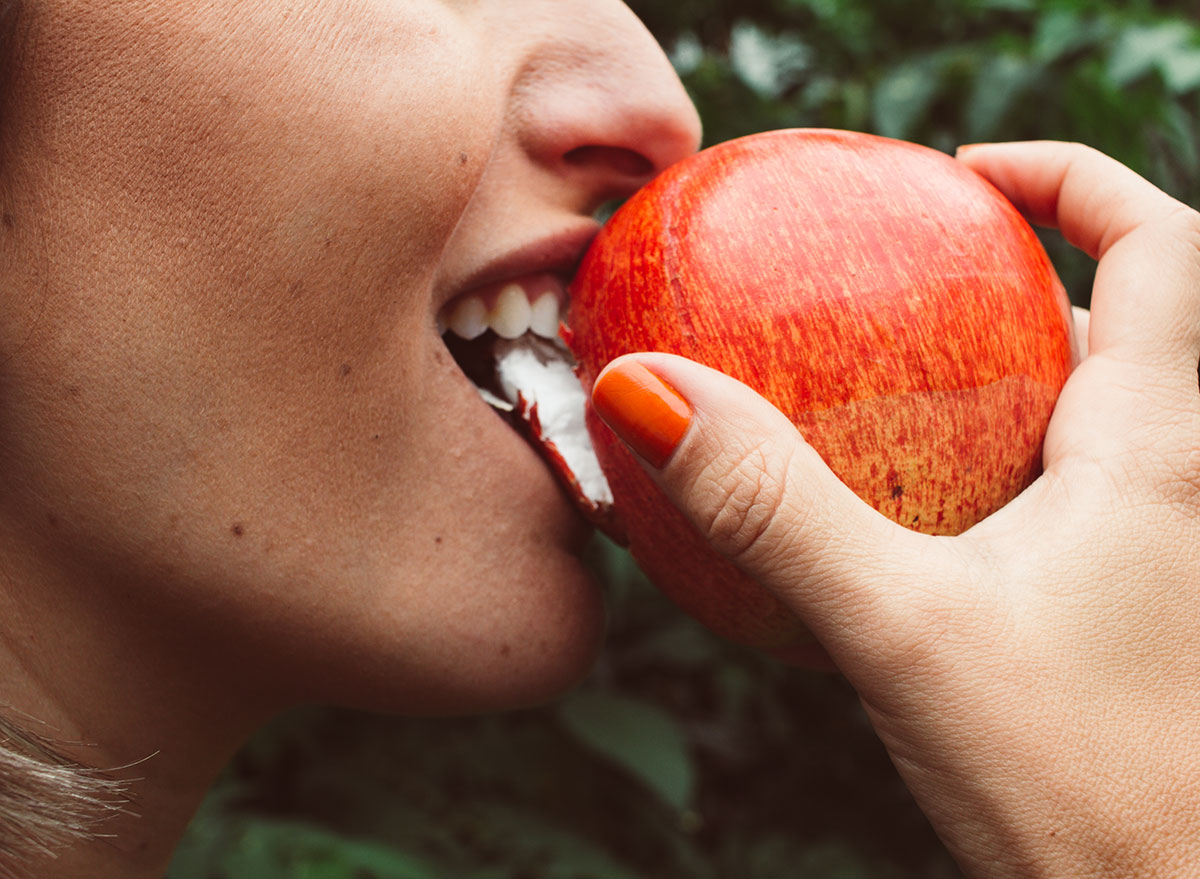
Sneezing like crazy? Itchy nose and eyes? The air has been thick with pollen this spring, causing many to experience severe seasonal allergy symptoms. And while the pollen in the air can create an allergic reaction, there are some cases where popular foods can cause the same types of reactions in your body—and can make your allergies feel even worse.
Dr. Andrea Burke, MD and Board Certified Allergist & Clinical Immunologist, says that this is known as Oral Allergy Syndrome (OAS), which is when your body will react to certain foods in the same way it will react to pollen.
“There are proteins throughout nature that can look quite similar to one another,” says Dr. Burke. “Allergy cells in the human body can recognize these similar patterns and react to them when encountered in the form of both pollen and food.”
Dr. Burke points out that OAS can happen year-round, but symptoms of it can seem worse during the pollen season. If you find that you are experiencing symptoms of runny nose, itching, and sneezing when outside during the warmer months, you may also experience a similar reaction in the mouth and throat when eating these popular foods.
“The thought is that the allergic immune system is ‘primed’ and ready to react because of all the pollen it encounters in peak allergy season,” says Dr. Burke. “So, given the tree pollen season has been particularly bad this year, it’s possible that people have noticed their OAS has been worse. For others, it may be the first time they are encountering the problem.”
Here are some of the popular foods that Dr. Burke says make your allergies feel worse due to OAS. And if you’re looking for even more allergy relief, be sure to read up on our list of 5 Foods to Eat Right Now to Help Combat Seasonal Allergies.
Foods connected to tree pollen
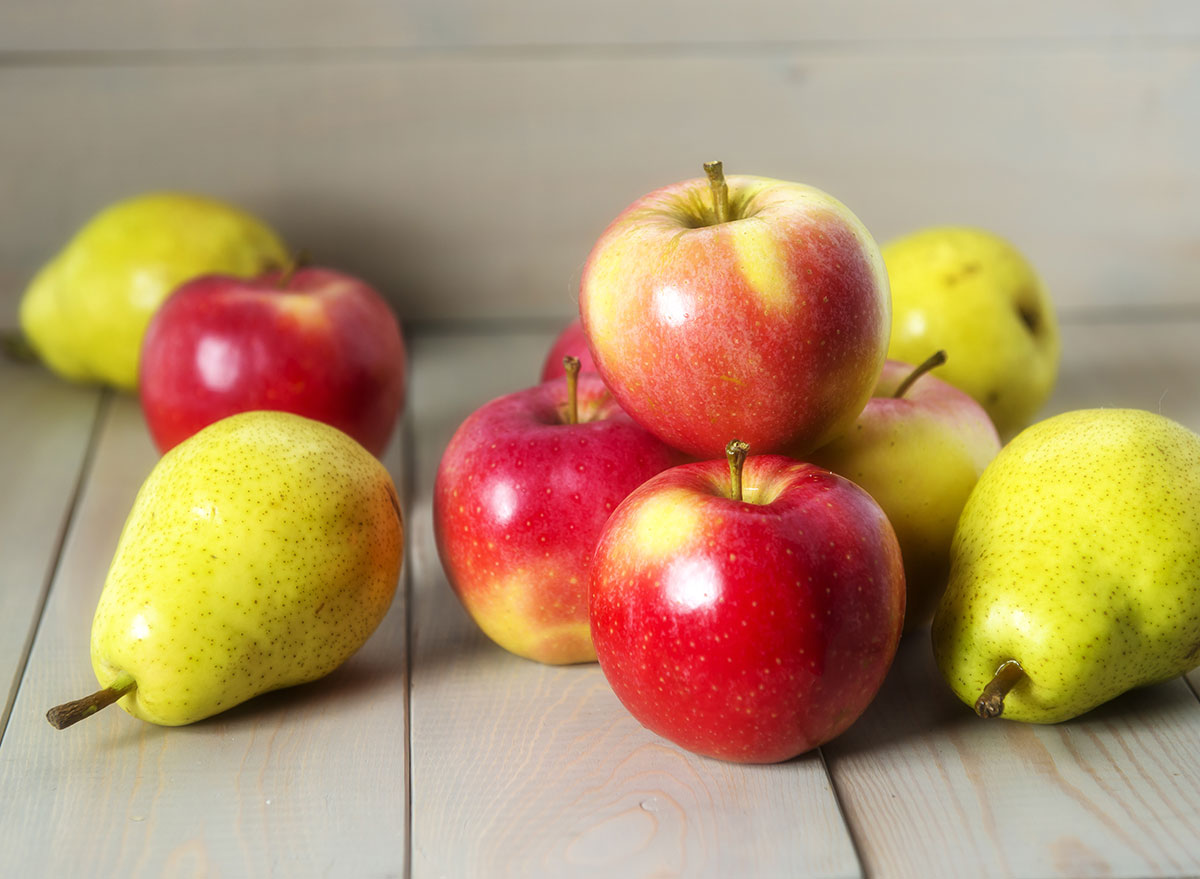
“We’re coming to the end of tree pollen season right now, so people who are allergic to birch pollen may have noticed they have symptoms when they eat certain foods,” says Dr. Burke.
Some of the foods that cross-react with birch pollen include:
- Apples & pears
- Pitted fruits (cherries, peaches, apricots, plums)
- Tree nuts (almond, hazelnut)
- Legumes (peanut, soybean)
- Apiacea family foods (carrot, celery, parsley, caraway, fennel, coriander, aniseed)
“For example, someone with a birch allergy gets itching in the nose or eyes from pollen floating in the air,” says Dr. Burke. “When that same person bites into an apple (which contains a protein that cross-reacts with birch pollen), they may experience symptoms as if they were eating a ball of pollen!”
Here are Sure Signs You Have a Pollen Allergy, According to a Doctor.
Foods connected to grass pollen
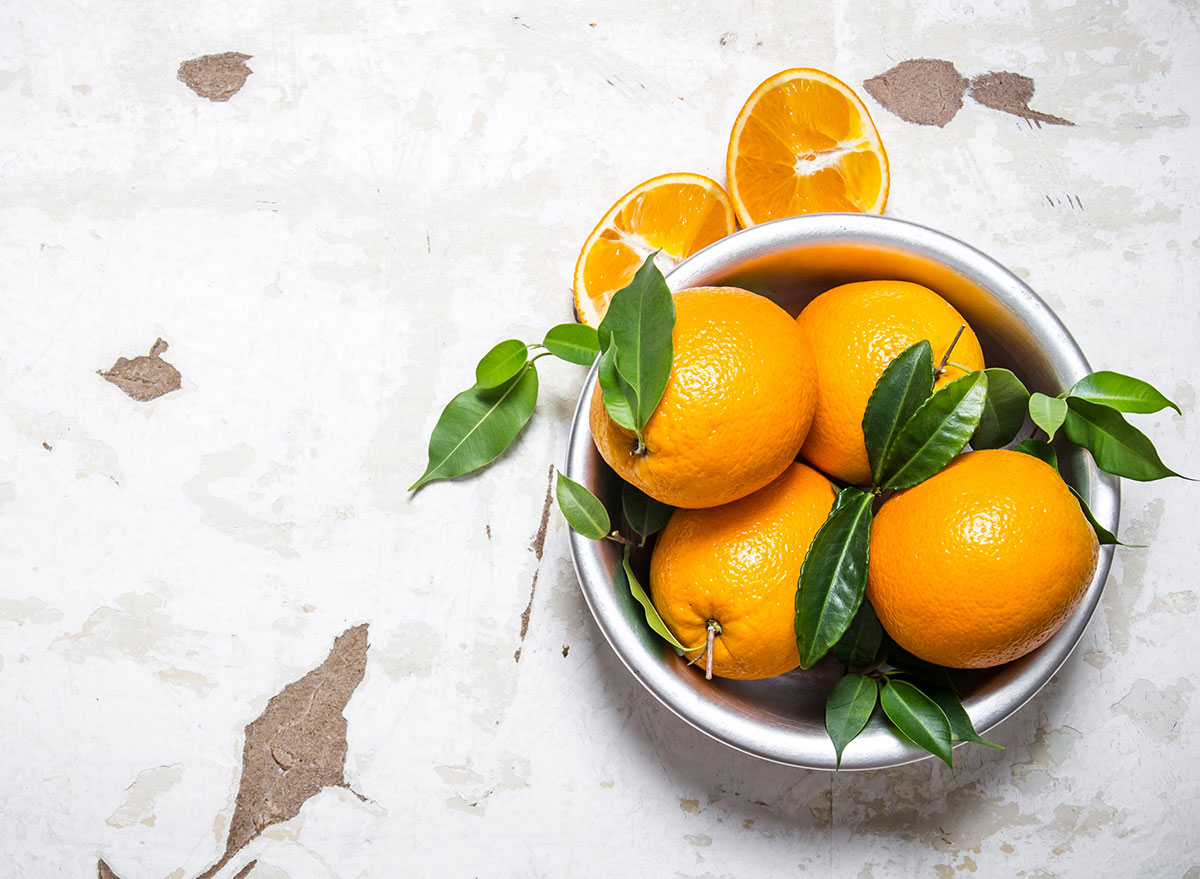
“This isn’t just a phenomenon in the spring,” says Dr. Burke. “We are now entering grass pollen season, so grass-allergic people may notice they are reacting to oranges, swiss chard, and potatoes.”
Related: The Alarming Reason Why So Many People Have Food Allergies, Says Yale
Foods connected to ragweed and/or mugwort pollen
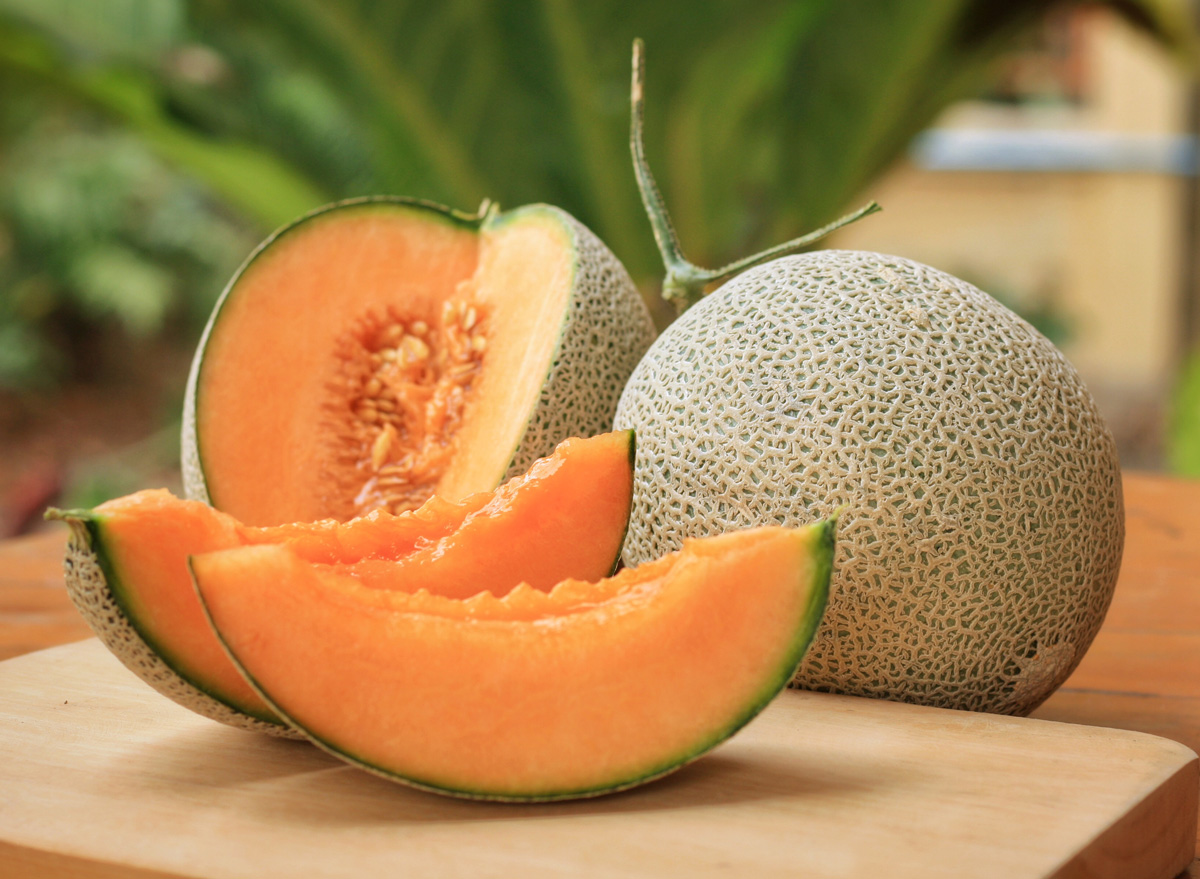
“In the fall, people who are allergic to ragweed and/or mugwort pollen can experience symptoms when eating melons (such as watermelon, honeydew, or cantaloupe) among other foods,” says Dr. Burke.
How to look for allergy symptoms when eating these popular foods.

If you are eating any of the above foods and experiencing allergic reactions, Dr. Burke says you’ll likely notice itching, tingling, and slight swelling in your mouth and throat within 5 or 10 minutes of eating this item. She also points out that these foods can worsen eczema symptoms as well.
While these symptoms can be mild, Dr. Burke does mention that any severe reactions would need emergency medical attention. And if you’re experiencing any symptoms at all, you should consult an allergist that can assist you with managing them.
In case you’re wondering, here’s the Difference Between a Food Allergy, a Sensitivity, and an Intolerance.
What you can do about it
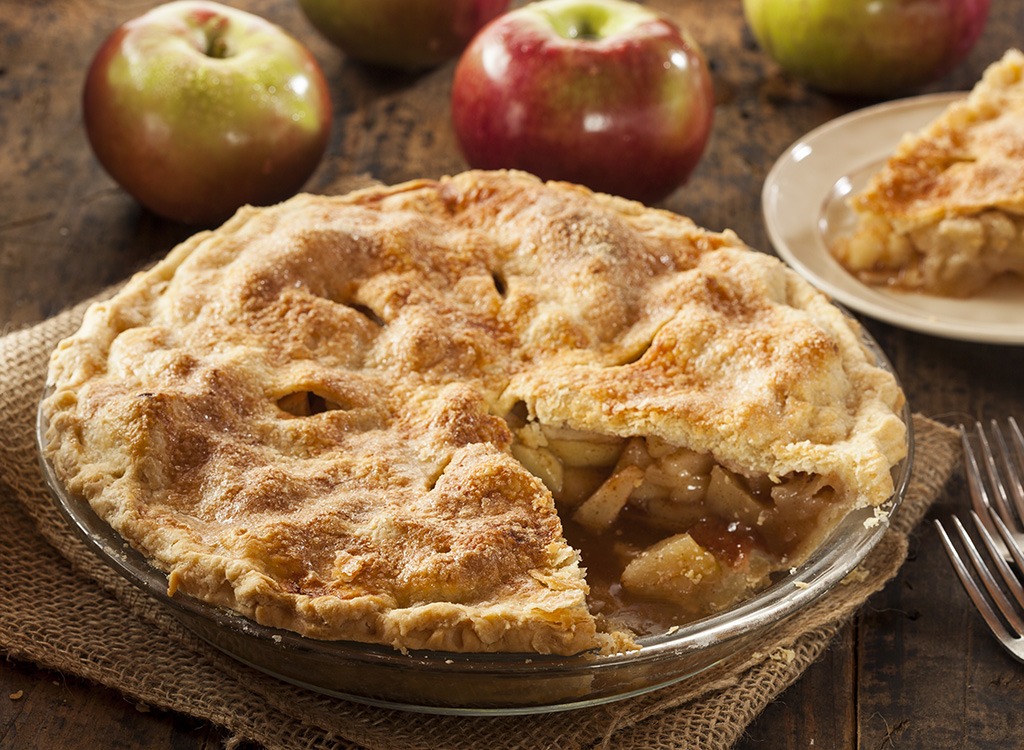
If you’re experiencing these symptoms when eating one of these popular foods, especially during peak allergy season, there are a few ways to make your allergy symptoms less severe. Dr. Burke recommends cooking or baking the food to help break down the allergenic protein so that your body no longer recognizes it.
“This is why people with OAS to apples can have apple pie without any issue,” says Dr. Burke. “Even briefly microwaving the fruit can sometimes make it tolerable to eat. Sometimes peeling a fruit makes it tolerable. An important exception is nuts—these are not made more tolerable by being heated.”
Sounds like a pretty good excuse to make apple pie, right?
Get even more helpful eating tips straight to your inbox by signing up for our newsletter!
